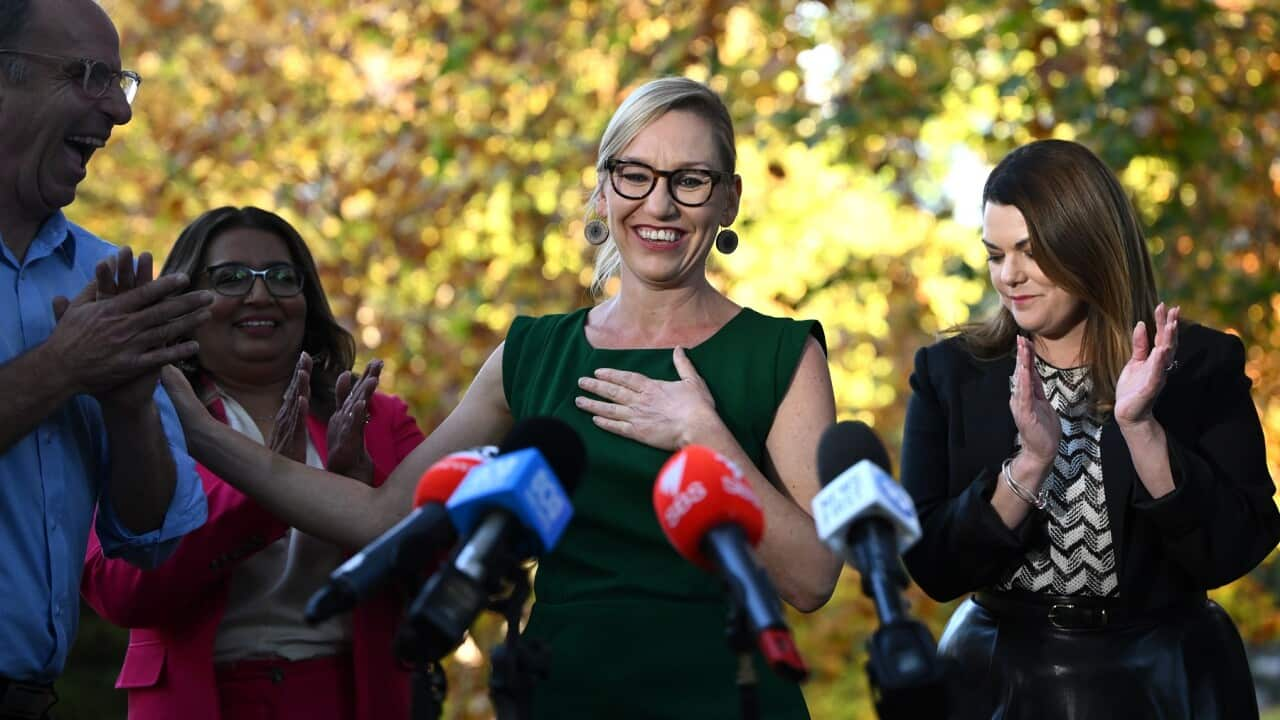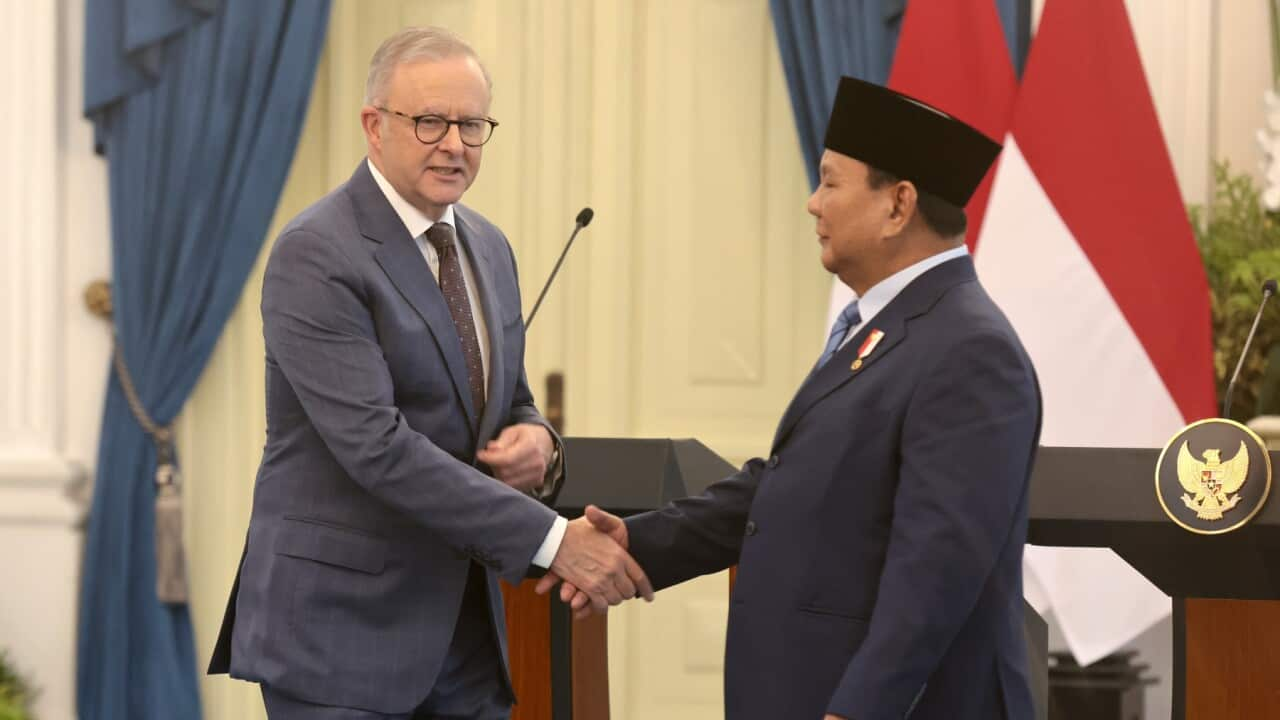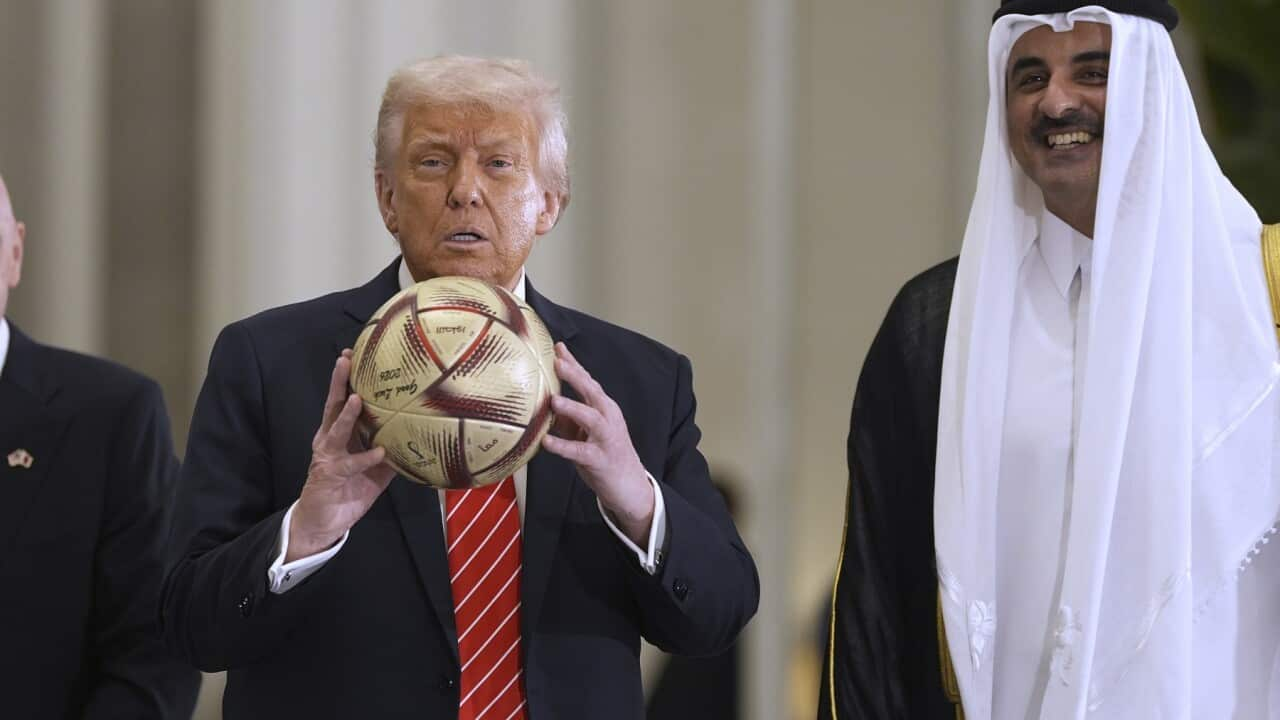TRANSCRIPT
A United Nations Security Council vote on a humanitarian ceasefire between Israel and Hamas has been delayed, following a request from the United States.
A similar resolution was vetoed by the U-S earlier this month.
Member states are locked in intense negotiations ahead of the vote, seeking to iron out any outstanding issues.
U-S State Department spokesman Matthew Miller says the United States is engaging constructively with its Security Council colleagues.
"We fully support addressing the humanitarian needs of the people of Gaza, as this resolution should set out to do. And we're working through these issues with other countries on the Security Council... We have made very clear to Israel that we think they need to do more to police and prevent extremist settler violence in the West Bank. And we have taken our own actions to hold extremist settlers accountable when they commit violent actions. And we will continue to do that and we will continue to speak both loudly from here about it and directly to Israel."
The resolution, sponsored by the U-S and United Arab Emirates, calls for an urgent and sustainable cessation of hostilities in its first draft.
But the US is seeking to water down that language in the final text to a "suspension" of hostilities.
The proposal also demands Israel and Hamas allow further aid to enter the Gaza Strip.
It also requests UN monitoring of the assistance delivered via land, sea and air routes.
United Nations Special Coordinator for the Middle East Peace Process, Tor Wennesland, says he would urge U-N members to vote in favour of the proposal.
“The delivery of humanitarian aid in the [Gaza] Strip continues to face nearly insurmountable challenges. Amid displacement of an unimaginable scale and active hostilities, the humanitarian response system is on the brink. The limited steps by Israel, including allowing entry of more fuel, food and cooking gas are positive, but fall short of what is needed to address the human catastrophe on the ground.”
A council resolution needs at least nine votes in favour and no vetoes by the US, France, China, the U-K or Russia.
Israeli President Isaac Herzog says Israel is ready for another humanitarian pause to secure the remaining hostages being held in Gaza.
Mr Herzog says it's now up to Hamas to make that happen.
"Israel is ready for another humanitarian pause and additional humanitarian aid, in order to enable the release of hostages. And the responsibility lies fully with (Hamas leader Yahya) Sinwar and the leadership of Hamas.”
Hamas chief Ismail Haniyeh is set to travel to Cairo for a series of 'high level talks' with Egypt's intelligence chief and other senior officials.
They're expected to discuss the possibility of a ceasefire in Gaza and a prisoner exchange with Israel.
Israeli Defence Forces have continued their attacks on Gaza.
The city's largest hospital in the south - Nasser Hospital in Khan Younis - has been bombarded over the past couple of days.
Gaza's Health Ministry says at least 13 Palestinians have been killed and 75 others injured after an Israeli airstrike on the Jabalia refugee camp in northern Gaza.
They say at least 25 Palestinians were killed in a bomb attack on a home in southern Gaza.
In other developments, hundreds of pro-Palestinian protesters in Australia have gathered outside Sydney's Town Hall while Prime Minister Anthony Albanese delivered an address to the Lowy Institute.
The protesters are calling for an immediate ceasefire in Gaza, and have criticised Australia, New Zealand and Canada for not also doing so.
In his speech, Mr Albanese re-iterated Australia recognises Israel's right to defend itself, but the way it does so matters.
"We have called on Israel to respect international humanitarian law. This means that civilians and civilian infrastructure must be protected, and humanitarian aid must be allowed to reach those in desperate need. This cannot be one-sided. Hamas must release all hostages immediately and unconditionally. It must stop using Palestinian civilians as human shields and lay down its arms."













